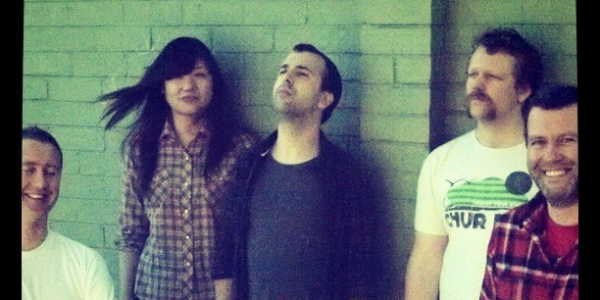Smeer formed Depression in the early ’80s, having already played in the odd local band. “We played our first band at the Seaview Ballroom, and we didn’t even have a drummer. We actually sound pretty good – a lot of people said we shouldn’t get a drummer!”, Smeer laughs With the members of the band all sporting mohawks and the odd tattoo – a relative rarity at the time, in comparison to the ubiquitous body art of modern times – Depression was a striking sight. “The guy who was booking the Ballroom at the time, Graeme Richmond, he didn’t give a shit what anyone looked like, and that was great. A lot of punk bands got their start down there – it was really an integral part of the Melbourne punk scene,” Smeer says.
Depression subsequently scored a residency at the John Barleycorn Hotel in Collingwood, where over a six-month period the band built up a strong and loyal following. One of the punters who enjoyed the band’s loud, confrontational and exuberant style was Phil MacDougall. MacDougall was contemplating starting his own record label, Reactor Records, and approached Depression to be the first band released on the label. “Phil came up to us one night after we’d got a bit of a following,” Smeer recalls. “We’d had a few people say they wanted to put out a record, but we just thought they were all full of shit. But Phil rang us up again, and we went with him because he was the only guy who actually came through with the money.”
It was around this time that Depression managed to score a support gig with the Dead Kennedys on the band’s now legendary 1983 Australian tour. “I used to go a lot into Missing Link at the time when it was owned by Nigel Rennard, and he was heavily involved in the tour, so we got the gig through him,” Smeer says. Dead Kennedys lead singer Jello Biafra liked Depression so much that he included a Depression song on his Welcome to 1984 compilation. “Jello was pretty intense,” Smeer says. “To tell you the truth, I was a bit overwhelmed. I actually ran into him again a few years later, and ended up taking him for a drive in my muscle car. He’s still a really intense, full-on guy, really into politics.”
Depression released a single on Reactor Records followed by a full-length album. The band’s lead singer, Spike, was gradually losing interest in the band in favour of body building activities. “Spike got heaps into body building and lost energy for the band, so I ended up taking over the singer with the band, and we released a couple more records after that,” Smeer says. Consistent with many overseas punk bands, Depression’s music included a heavy slice of social and political commentary, from social conformism to the Cold War to the narrow-minded attitudes of the mainstream music industry. “I’d been listening to the Sex Pistols, then we got into Crass, and they’re really political. We were writing to punk bands overseas, and they’d be telling us about the anarchy scene, which a lot of punk bands were into at the time,” Smeer says. “I think the songs we were writing at the time were a really good way of getting rid of the angst we were feeling at society and the system.”
By the late ’80s Depression had found itself victim to the oldest industry trick in the book – lack of payment for services rendered. “I just got really disillusioned when we put out a couple of records, and we didn’t get paid for them,” Smeer says. “I ended up going to see solicitors to try and get our money back, but they were only interested in keeping it going so they could keep getting money off you. So I ended up giving up music for six years,” Smeer says.
When Smeer did pick up a guitar, it was invariably accompanied by a spray of abuse toward the music industry that he’d once been part of. Eventually Smeer took a step back and realised what he’d enjoyed about music – the excitement of playing on stage. “I call it my one hour of glory!” Smeer laughs. Smeer returned to live music, playing in a series of bands. “I just kept playing louder and louder and putting more distortion into it,” he says. The idea for reforming Depression came from Bomber (aka Adam), who was playing drums in one of Smeer’s bands. Smeer enlisted Spike to assume vocal duties again, and Depression was re-born. “We’re gonna keep it going as we long as we enjoy it,” Smeer says. “I keep saying I’m gonna rock until I drop, as long as I can keep getting my rocks off on stage!” he laughs.
BY PATRICK EMERY

